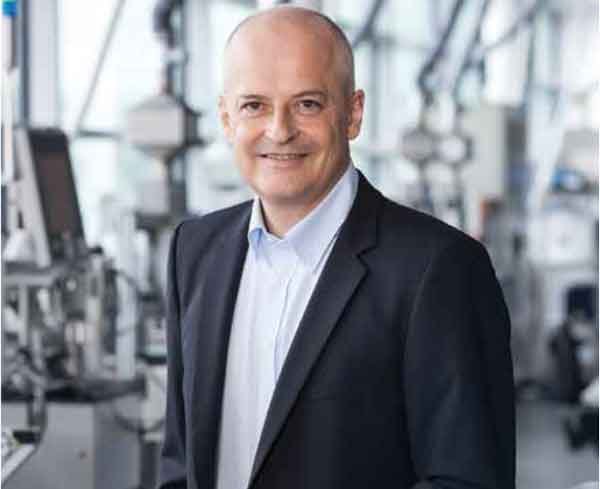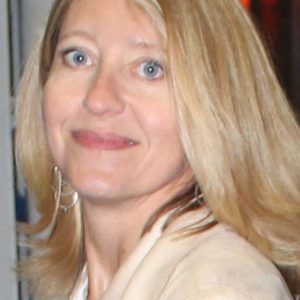 The Challenge
The Challenge
You’re recruited to replace the CEO of a multinational Swiss hearing-aid and cochlear implant manufacturing company abruptly washed out by a scandal. After allegedly issuing a late profit warning that enabled insiders to sell shares, your predecessor, his CFO and the company’s chairman were all forced to step down—leaving a gaping hole that you must now fill. In taking the helm, you will leave your current role as CEO of a defense company owned by the Swiss government and return to the public-company sphere.
The Context
When Lukas Braunschweiler became CEO in 2011, Staefa, Switzerland-based Sonova Holding AG was a leader in its market, selling its hearing aids and cochlear implants in more than 90 countries. Still, the company’s new CEO saw plenty of opportunity for growth. “Going in, we were able to identify areas underdeveloped by the industry as well as by Sonova,” Braunschweiler recounts. “For example, I was amazed that Asia accounted for just 10 percent of the company’s sales.”
What’s more, the hearing-instrument market in developed countries was—and remains today—underserved, with just 20 percent of those who could benefit from hearing aids using them.
Under Braunschweiler, Sonova began extending the reach of its four core brands—Phonak, Unitron, Advanced Bionics and Connect Hearing—to drive growth in what has long been a complex and fragmented market. “This is a $15 billion to $16 billion market in which three-quarters of the value-added in the industry is with the service channel— the audiologists, professionals who recommend and fit these instruments,” explains Braunschweiler. “We are at the mercy of the professionals when it comes to products.”
The company is also under tremendous pressure to innovate. On average, two-thirds of the hearing instruments sold in any given year are products less than two years old—suggesting that a strong pipeline is critical. After all, newly launched technologies like hearing aids that connect to smartphones are often what prompt reluctant potential customers to finally address their compromised hearing.
The Resolution
Broadly speaking, innovation is at the core of Sonova’s competitive strategy. The company devotes 7-8 percent of its revenue to R&D in an ongoing effort to enhance the experience of end users, notes Braunschweiler. “We see full automization of what we wear—instruments that let you alone and communicate with each other—as one of the big drivers,” he explains. “You walk through your living and listening situations and they adapt automatically, adjusting to different conversational environments.”
That innovation mindset also extends to marketing and sales. Braunschweiler likens his space to that of the optical industry back before the advent of value-oriented chains like LensCrafters began edging in on the eyeglass and contact lens marketplace once dominated by the storefront operations of individual opticians. While still dedicated primarily to wholesale, the company has been methodically building out a retail presence it began some 20 years ago, hoping to make inroads in a market its CEO describes as “ridiculously underpenetrated.”
“We want to get more customers, more end users, into stores, so we are developing our own channels, partnering with channels and making sure existing channels aren’t disappearing,” he explains. “If someone wants to retire and sell us a store, we might step in and integrate it into a more professional network.”
Last year, the company risked the wrath of its independent partners to ink a deal with Costco, hoping that building a presence within the wholesale retail chain’s 474-plus locations nationwide would boost its market share.
“It was not an easy year because the independents didn’t like us too much for a while,” reports Braunschweiler. “However, that’s come back now; and in February, we had a higher total market share. It’s a little bit like a ‘you cheated on me but I still love you’ attitude.”
Sonova recently committed to a similarly aggressive strategy in Germany, where it acquired Hansaton Akustik GmbH, a large, family-owned hearing aid wholesaler. The company had previously acquired the retail chains Vitakustik Hörgeräte GmbH and Fiebing Hörtechnik GmbH in 2006 and 2009 respectively, expanding its retail presence in Germany. “We had retail on a low level there before; but now, we will start to go vertical,” says Braunschweiler, who has been busy smoothing the ruffled feathers of German audiologists since the announcement. “Independents can be very emotional—very nervous that this is the beginning of the end.”
The Endgame
Sonova generated single-digit organic growth in the financial year 2014/2015 and revenues of more than $2.15 billion. During his tenure, Braunschweiler has clarified the company’s strategic focus on developing a direct retail presence in 10 countries, including the U.S., Canada, France and Germany.
“We had retail distribution when I came on board, but it was kind of an undercover operation, where we had everything on the balance sheet; but it wasn’t transparent,” he says. “We have made it a transparent part of our corporate strategy; and while that was risky, next to our products, I consider our distribution power to be one of the most important assets we have.”
The Lesson
Often, setting a strategic course is easier than sticking to it through stormy weather, says Braunschweiler. “My personal strategy and the strategy of the company are very centered on focus,” he says. “We can’t do everything. We have to focus on a couple of things and stick with them—and sometimes that’s hard for the team. You have to have the guts to suffer for a while without changing course. That takes resolve.”

Chief Executive Group exists to improve the performance of U.S. CEOs, senior executives and public-company directors, helping you grow your companies, build your communities and strengthen society. Learn more at chiefexecutivegroup.com.
0

1:00 - 5:00 pm
Over 70% of Executives Surveyed Agree: Many Strategic Planning Efforts Lack Systematic Approach Tips for Enhancing Your Strategic Planning Process
Executives expressed frustration with their current strategic planning process. Issues include:
Steve Rutan and Denise Harrison have put together an afternoon workshop that will provide the tools you need to address these concerns. They have worked with hundreds of executives to develop a systematic approach that will enable your team to make better decisions during strategic planning. Steve and Denise will walk you through exercises for prioritizing your lists and steps that will reset and reinvigorate your process. This will be a hands-on workshop that will enable you to think about your business as you use the tools that are being presented. If you are ready for a Strategic Planning tune-up, select this workshop in your registration form. The additional fee of $695 will be added to your total.

2:00 - 5:00 pm
Female leaders face the same issues all leaders do, but they often face additional challenges too. In this peer session, we will facilitate a discussion of best practices and how to overcome common barriers to help women leaders be more effective within and outside their organizations.
Limited space available.

10:30 - 5:00 pm
General’s Retreat at Hermitage Golf Course
Sponsored by UBS
General’s Retreat, built in 1986 with architect Gary Roger Baird, has been voted the “Best Golf Course in Nashville” and is a “must play” when visiting the Nashville, Tennessee area. With the beautiful setting along the Cumberland River, golfers of all capabilities will thoroughly enjoy the golf, scenery and hospitality.
The golf outing fee includes transportation to and from the hotel, greens/cart fees, use of practice facilities, and boxed lunch. The bus will leave the hotel at 10:30 am for a noon shotgun start and return to the hotel after the cocktail reception following the completion of the round.